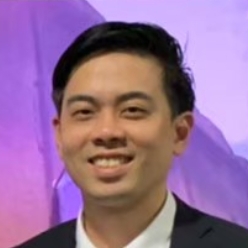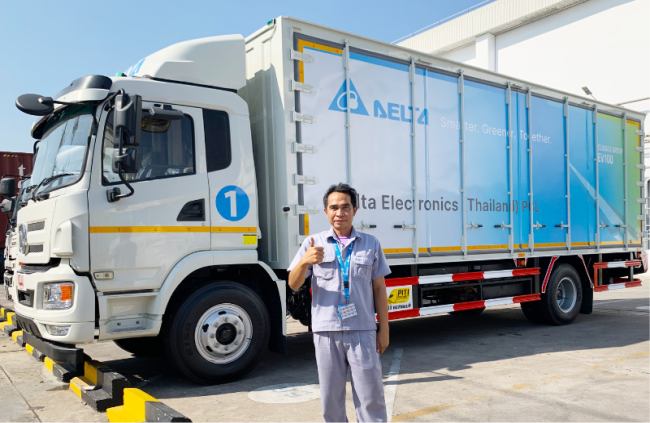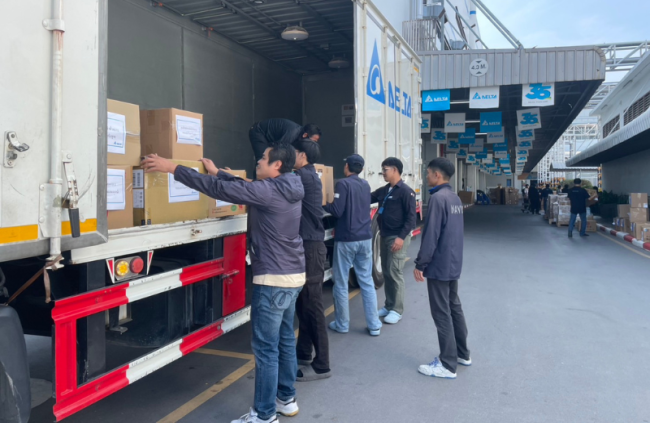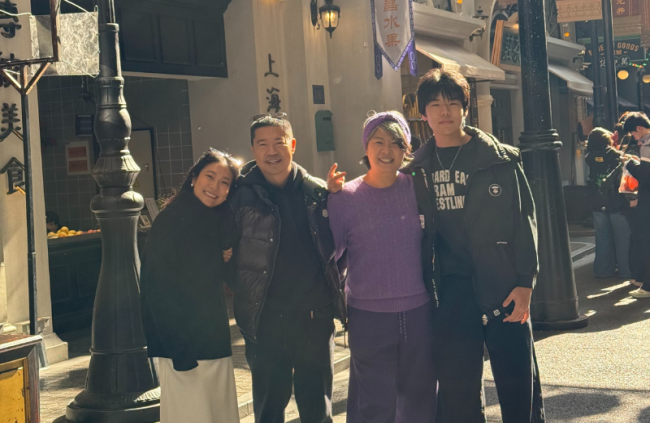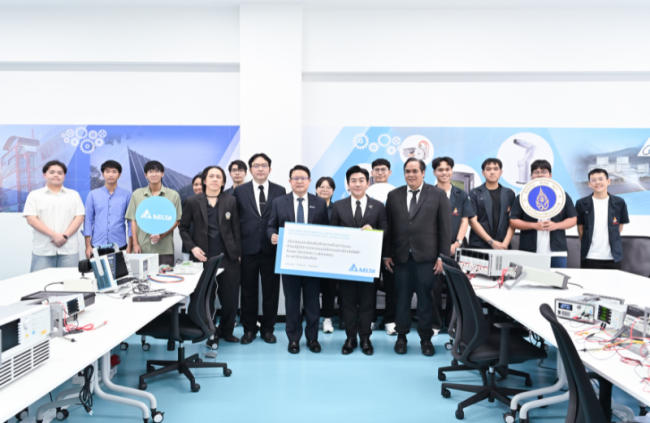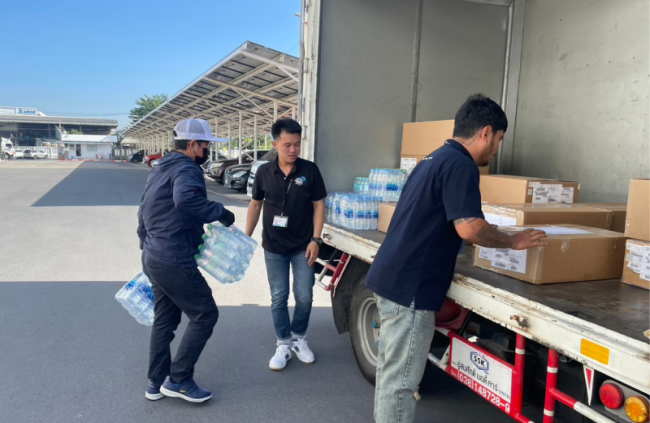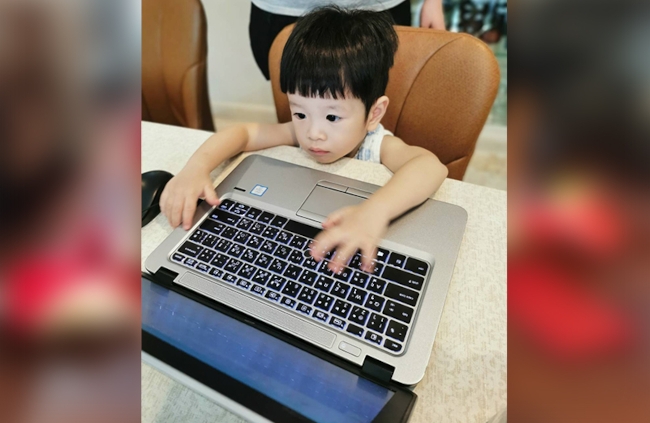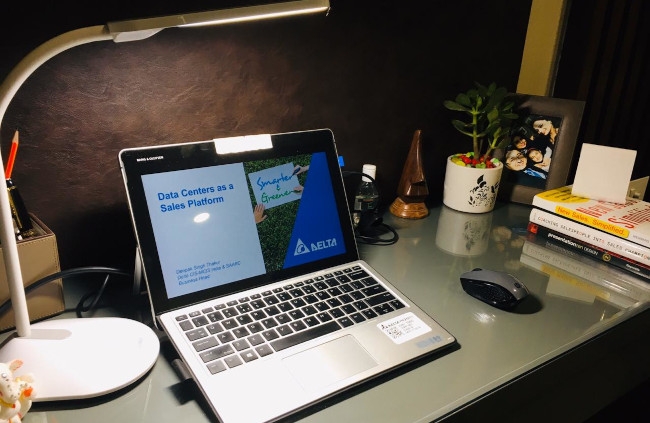Work Like You Own It: New DET President’s Advice for a Life of Adventure and Constant Improvement
By David Nakayama - Published May 12, 2020
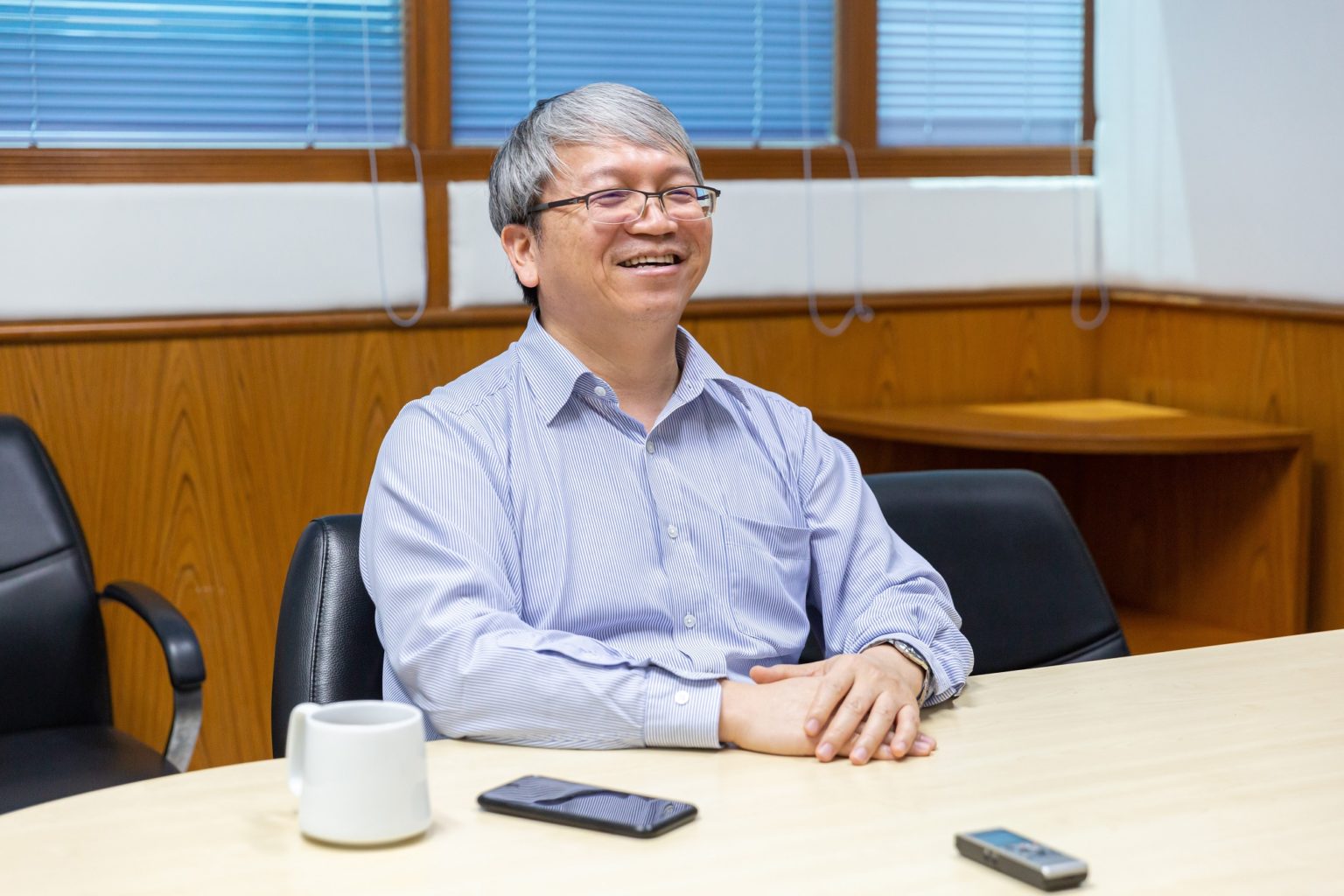 Interview with Mr. Jackie Chang, President of Delta Southeast Asia, India and Australia
Interview with Mr. Jackie Chang, President of Delta Southeast Asia, India and Australia
Text by David Nakayama, DET Corp Comms
Photographs by Eakkachai Bunt, DET IPS Marketing and DET Archives
Samutprakarn, Thailand, April 21, 2020-For over two decades, Jackie Chang has been Delta’s man in Europe, a key figure in putting Delta on the map in the Europe, Middle East and Africa (EMEA) region. This April, the storied former EMEA president took on a new role as the president of Delta in Southeast Asia, India and Australia. Yet despite DET’s reputation as a tropical paradise, the gregarious and meticulous new president finds he must now overcome headwinds from the US-China trade war and COVID-19 crisis.
With his characteristic wry humor, Jackie jokes that he doesn’t know if he’s lucky or unlucky to take over now. As we sat for an exclusive interview, our boss walked me through his fascinating journey with Delta from Asia to Europe and back, gave insights on our current risks and opportunities and offered an intimate view into the mind of a dynamic leader.
Can you tell us about your early days at Delta Taiwan?
My life before Delta was simple and ordinary. In 1992, I started in sales at Delta’s Taoyuan factory. I never got bored because there was always something new to take on and learn. Now some people may think it’s just a job, but even from the beginning I always worked at Delta like I was running my own business. I did whatever it took to make our company a success.
At Taoyuan, I sold components like transformers, DC fans and EMI filters to European customers. I would stay longer than regular working hours to learn about the processes in manufacturing, product design, logistics in a bonded facility, material flow and even part number names.
After a year, I joined the Taipei headquarters as a domestic salesperson. Because I spoke English, I also took on extra assignments to conduct international business with customers on the US East coast at night after domestic sales. So instead of an easier nine-to-five job, I found myself working from eight in the morning to midnight.
What are some interesting memories you have of starting out abroad?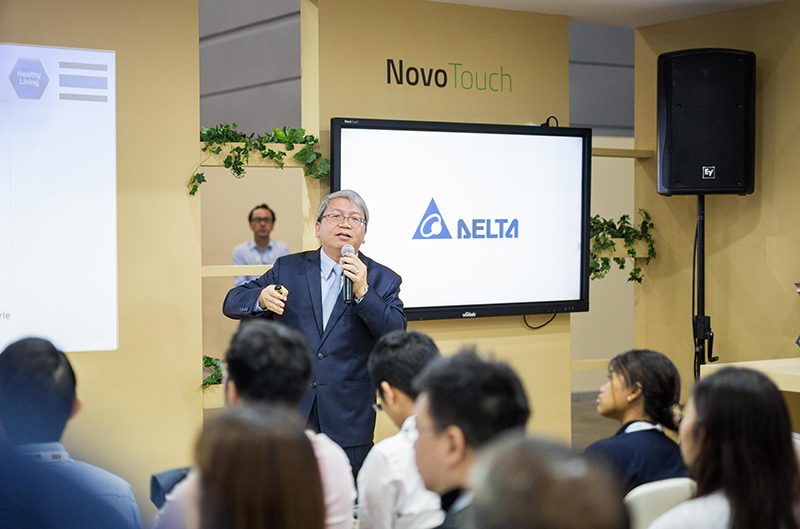 In 1995, I had my first chance to get to know Thailand and Bangkok when I accepted an assignment to develop the European business while based in the UK. I stopped over in Bangkok, where I met Dick Hsieh, because there was no direct flight from Taiwan to the UK back then. Dick was like a big brother to me and he took me to the UK to start a new chapter of my life. On the way back to Glasgow from London, I looked out with awe at the dark and snowy Scottish countryside never thinking I would spend years of my life in Europe.
In 1995, I had my first chance to get to know Thailand and Bangkok when I accepted an assignment to develop the European business while based in the UK. I stopped over in Bangkok, where I met Dick Hsieh, because there was no direct flight from Taiwan to the UK back then. Dick was like a big brother to me and he took me to the UK to start a new chapter of my life. On the way back to Glasgow from London, I looked out with awe at the dark and snowy Scottish countryside never thinking I would spend years of my life in Europe.
But culture shock was my first lesson upon arrival to Scotland. To my surprise all the English I’d learned since High School was useless. I didn’t have a clue what anyone was saying. I tried every possible way to learn including watching the news, reading newspapers and checking the dictionary but it took over two weeks before I could understand what local people were talking about. Three months later, I phoned a customer in England and almost burst into tears when I finally heard understandable English.
How did you develop Delta’s UK market and transition to EMEA president?
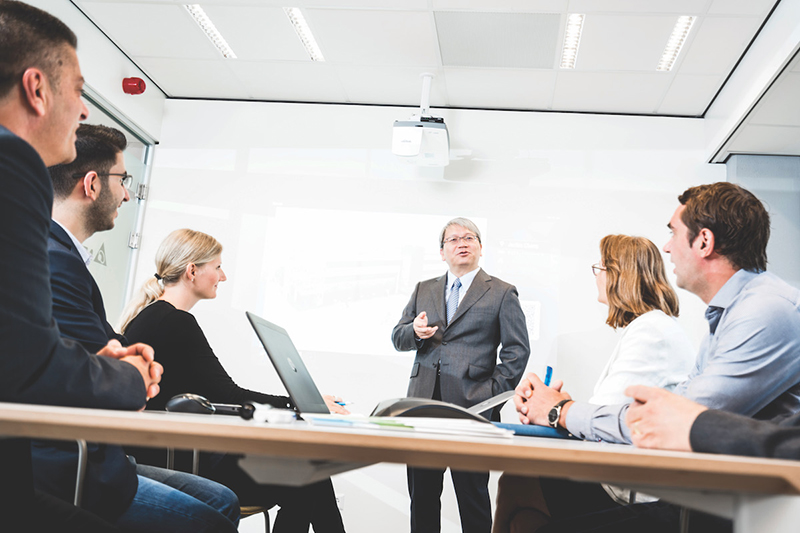 There wasn’t much in Scotland to do but dedicate myself to work. I had customers across the UK so on Sunday I’d drive down to England and then visit them on my way back all week. Sometimes I’d go cold calling like an insurance broker. This was before the internet and Google, so I’d look at my map for any industrial parks and drive around to find potential customers.
There wasn’t much in Scotland to do but dedicate myself to work. I had customers across the UK so on Sunday I’d drive down to England and then visit them on my way back all week. Sometimes I’d go cold calling like an insurance broker. This was before the internet and Google, so I’d look at my map for any industrial parks and drive around to find potential customers.
It took me about two years to lay a solid sales groundwork by mostly working alone on the field while communicating with Taiwan for new products to promote locally. The good news was our revenue grew substantially and I was promoted to regional director for the power supply business when I left for our Amsterdam headquarters. In 2010, I became president of the EMEA region covering Europe, the Middle East and Africa.
What experiences from EMEA can you bring to your new role as DET president?
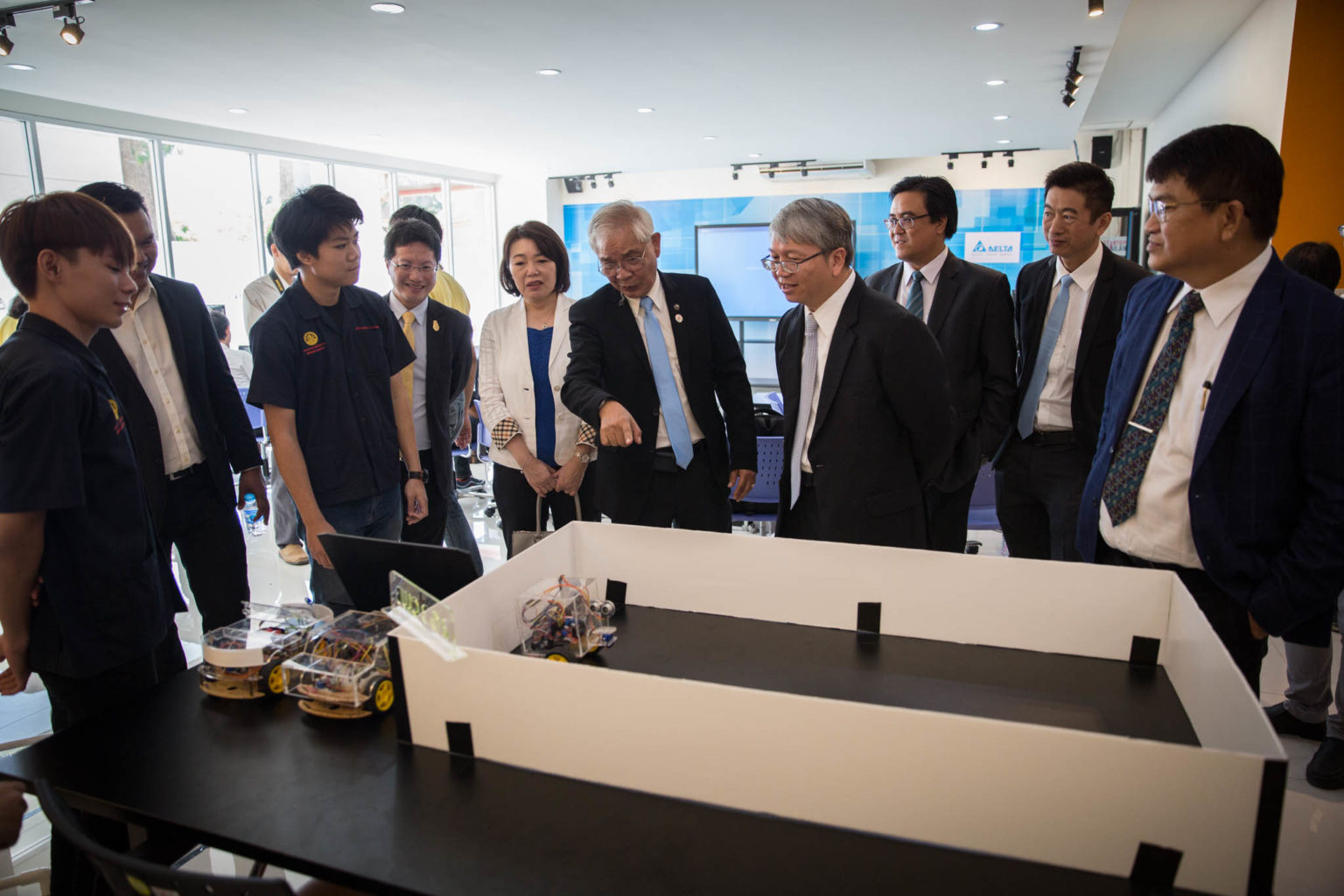 My time in Europe gave me experience in a business model that's totally different from Delta’s OEM/ODM business. The attitude to take on any assignment as my own business pushed me to quickly pick up on things to manage branding activity, service, customer penetration, even local design and manufacturing. As president of EMEA, I learned how to leverage synergy and resources, understand and respect cultures and motivate everyone to work properly. During this time I already had a lot of experience co-working with Thailand and India.
My time in Europe gave me experience in a business model that's totally different from Delta’s OEM/ODM business. The attitude to take on any assignment as my own business pushed me to quickly pick up on things to manage branding activity, service, customer penetration, even local design and manufacturing. As president of EMEA, I learned how to leverage synergy and resources, understand and respect cultures and motivate everyone to work properly. During this time I already had a lot of experience co-working with Thailand and India.
Another thing I could bring in from the EMEA region is a continuation of cultural respect and learning. Thai culture, their nature and their way of thinking is not as aggressive as in Taiwan, Hong Kong or Singapore. Once Thais understand and will accept or adapt to your message, then they’re cooperative and things flow smoothly. For example, I recently tried to make some improvements in the factory and once they understood why we wanted to do it and what our concerns are, they changed and improved even better than I thought possible.
As we unite to overcome the COVID-19 crisis, what do you see as DET’s next milestones in terms of positive impact and business opportunities?
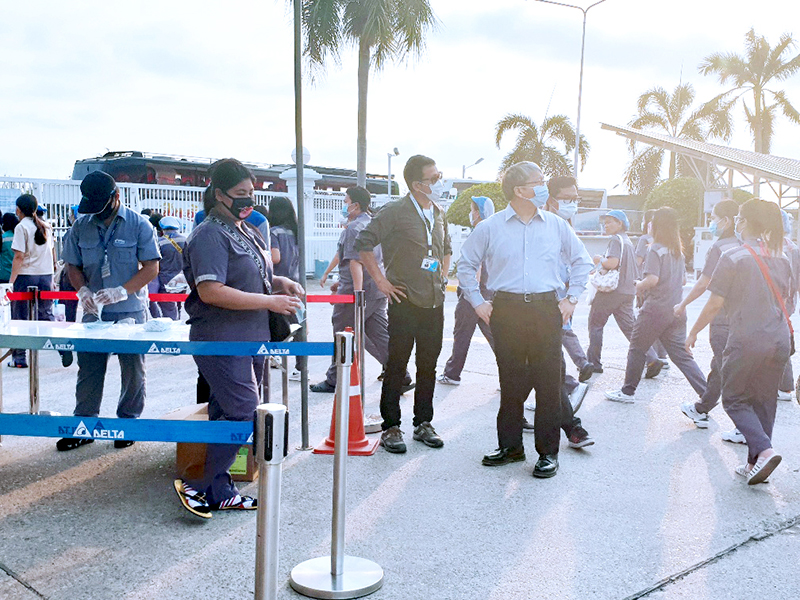 In Chinese, there’s one very good term for crisis called 危機 Wéijī that translates as “Risk” 危(Wéi) and “Opportunity” 機 (Jī). Risk is inevitable with COVID-19, but we need to make sure we prepare well and avoid infection in the factory. I think everyone can feel from the company’s actions that we care about our employees and are doing what we can to protect them.
In Chinese, there’s one very good term for crisis called 危機 Wéijī that translates as “Risk” 危(Wéi) and “Opportunity” 機 (Jī). Risk is inevitable with COVID-19, but we need to make sure we prepare well and avoid infection in the factory. I think everyone can feel from the company’s actions that we care about our employees and are doing what we can to protect them.
Actually the bigger risk in the mid-term is the economic downturn from decreased market demand, especially in Europe and the USA. People are starting to reduce their expenditure due to COVID-19 and everyone is worried about their future incomes. That’s one of the reasons the automotive industry is starting to seriously decline. So we need to get past these hurdles.
But there’s also opportunity. With everybody working from home or staying in more, we need internet bandwidth and storage, making data centers a vital and essential expansion goal for every country. That’s one reason our telecom power systems and UPS factory in Rudrapur was among the first priorities for the Indian government to reopen.
In the meantime, the US-China trade war also provides the opportunity to transfer manufacturing centers from China to ASEAN countries. We’re also taking the chance to further expand our regional footprint with a new legal entity in Vietnam to further penetrate the Indochina area and help us continue operating even during crises.
Who is the most memorable person for you at Delta, and why?
The first Delta person who comes to my mind is Bruce Cheng, our founder and honorable chairman. I have to say his influence at Delta is so big. He’s a visionary who cares so much about a lot of things like environmental protection. To me, he’s like a father to the Delta family who leads and guides us to the future.
What are some unexpected lessons that you have learned in leading for growth?
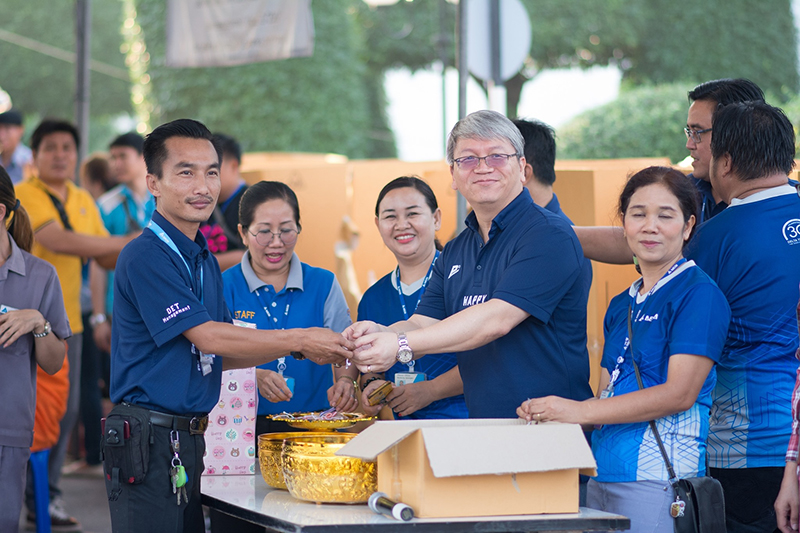 Most experienced managers have been through a lot of activities and successes, but normally communication will still take up a lot of their time. Nowadays, unless I’m chairing the meeting, I prefer to be a listener. A good listener could receive more information and observe the speaker’s body language much better. It also shows you pay more attention and respect the other side.
Most experienced managers have been through a lot of activities and successes, but normally communication will still take up a lot of their time. Nowadays, unless I’m chairing the meeting, I prefer to be a listener. A good listener could receive more information and observe the speaker’s body language much better. It also shows you pay more attention and respect the other side.
Sometimes I use the trick of holding a pen to remind myself not to talk because when you have a lot of experience it’s very easy to think, “Oh, I already know what this person is talking about.” But that’s not good. We need to learn to be patient and wait for others to speak because if you constantly interrupt people, they'll feel it’s better to not talk at all.
When I first came to Southeast Asia, I intended to get everything done quickly but Dick told me, “You are moving too quick Jackie.” When I thought about it and realized why he was saying this, I adjusted myself to think further before making my next move.
The culture in the Netherlands is very straightforward. That’s why people say “Let’s go Dutch”. From a business point of view, being straightforward is not a bad thing and it gives a clear and open direction forward. However, the culture in Asia is not too straightforward, so I need to let everyone understand me better with more communication to reach a consensus before taking any necessary actions.
What would you like to share with your Delta colleagues around the world?
I’d remind everyone to: Work like it’s your own business and have a mindset of constant improvement! In such a dynamic environment, if you are not making any progress, change, or improvement constantly, then you are out of date. The Delta logo is also a symbol of change. So let’s forget our historical burdens and make improvements together. No doubt I’ll keep on looking for improvement areas and driving changes.
